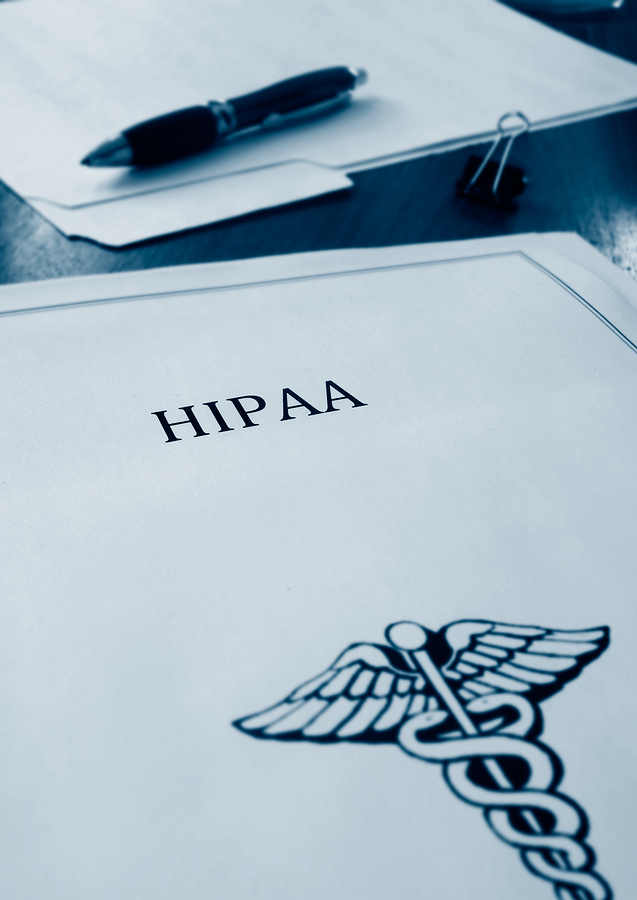Contact Us
Categories
- FTC
- Emotional Support Animals
- Service Animals
- Employee Agreement
- Remote Work
- Federal Trade Commission
- LGBTQ
- Minors
- United States Department of Justice ("DOJ")
- Work from Home
- Arbitration
- Workplace health
- Intellectual Property
- Trade Secrets
- Corporate
- Center for Disease Control
- Americans with Disabilities Act ("ADA")
- FFCRA
- Opioid Epidemic
- Occupational Safety and Health Administration (“OSHA”)
- COVID-19
- Coronavirus
- Families First Coronavirus Response Act
- H.R.6201
- Health Care Law
- IRS
- Paid Sick Leave
- Temporary Leave
- Treasury
- Worker Misclassification
- Labor Law
- Overtime
- Kentucky Unemployment Insurance Commission
- Sexual Harassment
- FMLA Retaliation
- Overtime Rule
- Employer Wellness Programs
- Genetic Information Nondiscrimination Act ("GINA")
- Kentucky minimum wage
- Minimum wage
- Paid Time Off ("PTO")
- Sick Employees
- Wage and Hour
- Employee Benefits
- Employment Discrimination Laws
- Employment Non-Discrimination Act ("ENDA")
- ERISA
- Fair Labor Standards Act (FLSA)
- Human Resource Department
- Independent Contractors
- Kentucky Civil Rights Act (“KCRA”)
- OSHA
- Overtime Pay
- U.S. Department of Labor
- Union
- ADA Amendments Act of 2008 (“ADAAA”)
- Adverse Employment Action
- Amazon
- Americans with Disabilities Act
- Bring Your Own Device
- BYOD
- Civil Rights
- Compliance
- Department of Labor ("DOL")
- EEOC
- Employee Handbook
- Employee Misconduct
- Employment Law
- Family and Medical Leave Act (“FMLA”)
- National Labor Relations Act (NLRA)
- National Labor Relations Board (NLRB)
- Portal-to-Portal Act of 1947
- Pregnancy Discrimination Act
- Security Screening
- Social Media
- Social Media Policies
- Title VII of the 1964 Civil Rights Act
- U.S. Equal Employment Opportunity Commission (“EEOC”)
- U.S. Supreme Court
- Uncategorized
- Volunteer
- Young v. UPS
- Department of Health and Human Services
- Federal contractors
- Kentucky Labor Cabinet’s Occupational Safety and Health Program (KOSH)
- Micro-unit
- Security Checks
- Specialty Healthcare & Rehabilitation Center of Mobile
- Cloud
- Creech v. Brown
- EEOC v. Hill Country Farms
- Equal Employment Opportunity Commission v. Kaplan Higher Education Corp.
- Lane v. Franks
- Mine Safety and Health Administration ("MSHA")
- Non-exempt employees
- Northwestern
- Shazor v. Prof’l Transit Mgmt.
- Web Content Accessibility Guidelines
- Whistleblower
- WorkSmart Kentucky
- "Ban-the-box"
- 2013)
- At-will employment
- Berrier v. Bizer
- Bullying
- Chapter 11 Bankruptcy
- Chenzira v. Cincinnati Children’s Hospital Medical Center
- Citizens United v. Federal Election Commission
- Companionship services
- Compensatory time off
- Conestoga Woods Specialties v. Sebelius
- Consumer Credit Protection Act (“CCPA”)
- Crystalline Silica
- Davis-Bacon and Related Acts
- Drug-Free Workplaces
- Earnings
- EEOC v. Fabricut
- EEOC v. The Founders Pavilion
- Ehling v. Monmouth-Ocean Hospital Service Corp.
- Federal Stored Communications Act (“SCA”)
- Giant Food LLC
- Government employees
- Government shutdown
- Health-Contingent Wellness Programs
- HIPAA
- Home Health Care Workers
- Illness and Injury Reports
- Job applications
- Jury duty
- Kentucky Department of Workers’ Claims
- Kentucky Wage and Hour Act
- KYSHRM 2013
- Mandatory vaccination policies
- Maternity Leave
- McNamara O’Hara Service Contract Act
- Medical Exams
- NFL Bullying Scandal
- Participatory Wellness Programs
- Payroll
- Permissible Exposure Level ("PEL")
- Private employers
- Sebelius v. Hobby Lobby Stores
- Senate Bill 157
- SHRM
- Small Business Administration (SBA)
- Violence
- Wage garnishment
- COBRA
- Contraceptive Mandate
- Defamation
- Defense of Marriage Act (“DOMA”)
- Employee Arrests
- Employee Forms
- Employee Hazards
- Employee of the Month Programs
- Employee photographs
- Employee Training
- Employer Group Health Plans
- Employer Mandate
- Employment Practices Liability Insurance
- Endorsements
- Federal Workplace Agencies
- FICA
- Form I-9
- Freedom of Speech
- Gatto v. United Airlines and allied Aviation Services
- House Labor and Industry Committee
- KRS 391.170
- Litigation
- Madry v. Gibraltar National Corporation
- Megivern v. Glacier Hills Incorporated
- Motivating Factor
- Obesity
- Online Account Protection
- Online Defamation
- Patient Protection and Affordable Care Act
- Pennington v. Wagner’s Pharmacy
- Pension Plans
- Play or Pay
- Posting Requirements
- Record Retention
- Reference checks
- Religious Employer
- Right to Work Bill
- Sequester
- Severance Pay
- Social Media Ownership
- Supervisor
- Supplemental Unemployment Compensation Benefits
- Tangible employment actions
- Tax Refund
- Telecommuting
- Title VII retaliation cases
- Troyer v. T.John.E Productions
- U.S. Citizenship and Immigration Services
- Unfair Labor Practice
- United States v. Quality Stores
- United States v. Windsor
- University of Texas Southwestern Medical Center v. Nassar
- Vance v. Ball State University
- White v. Baptist Memorial Health Care Corp.
- Crisis Management
- Job Description
- Job Requirement
- Kentucky’s Whistleblower Act
- Labor and Pensions ("HELP")
- Municipal Liability
- PhoneDog v. Kravitz
- Public Sector Liability
- Social Networking Online Protection Act (SNOP)
- Social Privacy Laws
- Strategic Enforcement Plan (SEP)
- Wilson v. City of Central City
- Workplace Politics
- Business Insurance
- Class Action Waivers
- Criminal Background Checks
- Employee Performance Reviews
- Employee Personnel Files
- Federal Arbitration Act (FAA)
- Federal Department of Labor
- Hiring and Firing
- Hosanna-Tabor Opinion
- Informal Discussion Letter (“EEOC Letter”)
- Insurance Coverage
- Kentucky Labor Cabinet
- National Labor Relations Act
- Retaliation by Association
- Salary Threshold
- Unemployment Benefits
- Workplace Discrimination, Harassment and Retaliation
- Communications Decency Act
- Employee Contracts
- Internet & Media Law
- Internet Defamation
- Non-Compete Agreement
- Uniformed Services Employment and Reemployment Rights Act
- USERRA
Coronavirus and Confidentiality
As the coronavirus crisis continues, employers are confronted more and more by questions of confidentiality in the face of a pandemic and worried employees. Below are some questions employers are facing, along with some guidance about how to maintain employee confidentiality in the workplace.

I’ve heard that HIPAA prohibits the disclosure of health information – does it apply to me as a non-healthcare employer?
Many employers are concerned with how their actions during the COVID-19 crisis may trigger confidentiality laws regarding sensitive employee health information. While the Health Insurance Portability and Accountability Act of 1996 (HIPAA) applies to specified “Covered Entities” (i.e. healthcare providers, clearinghouses, and insurance companies) and their “Business Associates,” other employers are still bound by certain requirements to protect sensitive employee health information pursuant to the Americans with Disabilities Act and other applicable guidance. We have more guidance for employers on this topic available here.
Am I required to tell co-workers that they have been exposed to COVID-19 in the workplace? Am I prohibited from saying anything if an employee does develop the illness?
Employers should definitely tell employees who worked with the individual in question that they were potentially exposed, as soon as possible and preferably in writing without – and this is the tricky part – giving that person’s name or other personal information. The Americans with Disabilities Act requires that medical information about specific employees be kept confidential and only disclosed to certain individuals, such as supervisors who would need to know about necessary work restrictions or accommodations, first aid and safety personnel if that individual may require treatment, and government officials investigating compliance with the ADA.
An employee went home suddenly, and other employees have asked me directly if that employee was sick – can I tell them if the answer is “yes”?
The best practice here is to continue to maintain employee confidentiality, but you can and should inform employees that they were exposed and have them quarantine.
After disclosing that certain co-workers had been exposed to COVID-19 in the workplace, employees have determined the identity of the sick employee – as an employer, do I have to stop them from discussing that individual and spreading that information?
This is a sticky situation for employers, since this kind of information will invariably get out. Your duties as an employer are to maintain employee medical information confidentiality, so ensure that your management and supervisors know that they can’t spread information about specific employees and their illnesses, even in this situation. Inform them of what they can say, which is to tell affected coworkers about their exposure.

Cynthia L. Effinger, Member with McBrayer, is located in the firm’s Louisville office. Ms. Effinger’s practice is concentrated in the areas of employment law and commercial litigation. Her employment law practice is focused on drafting employment manuals and policies, social media, wage and hour, non-compete agreements and workplace discrimination. Ms. Effinger can be reached at ceffinger@mcbrayerfirm.com or (502) 327-5400, ext. 2316.

Anne-Tyler Morgan is a Member of McBrayer law. Her law practice primarily focuses on politics, elections, and campaign finance, nonprofit institutions and associations, foster care and adoption, administrative law, healthcare law, pharmacy law and transactional healthcare and transactional agreements. Ms. Morgan can be reached at atmorgan@mcbrayerfirm.com or (859) 231-8780, ext. 1207.
Services may be performed by others.
This article does not constitute legal advice.

 Like
Like LinkedIn
LinkedIn Email
Email